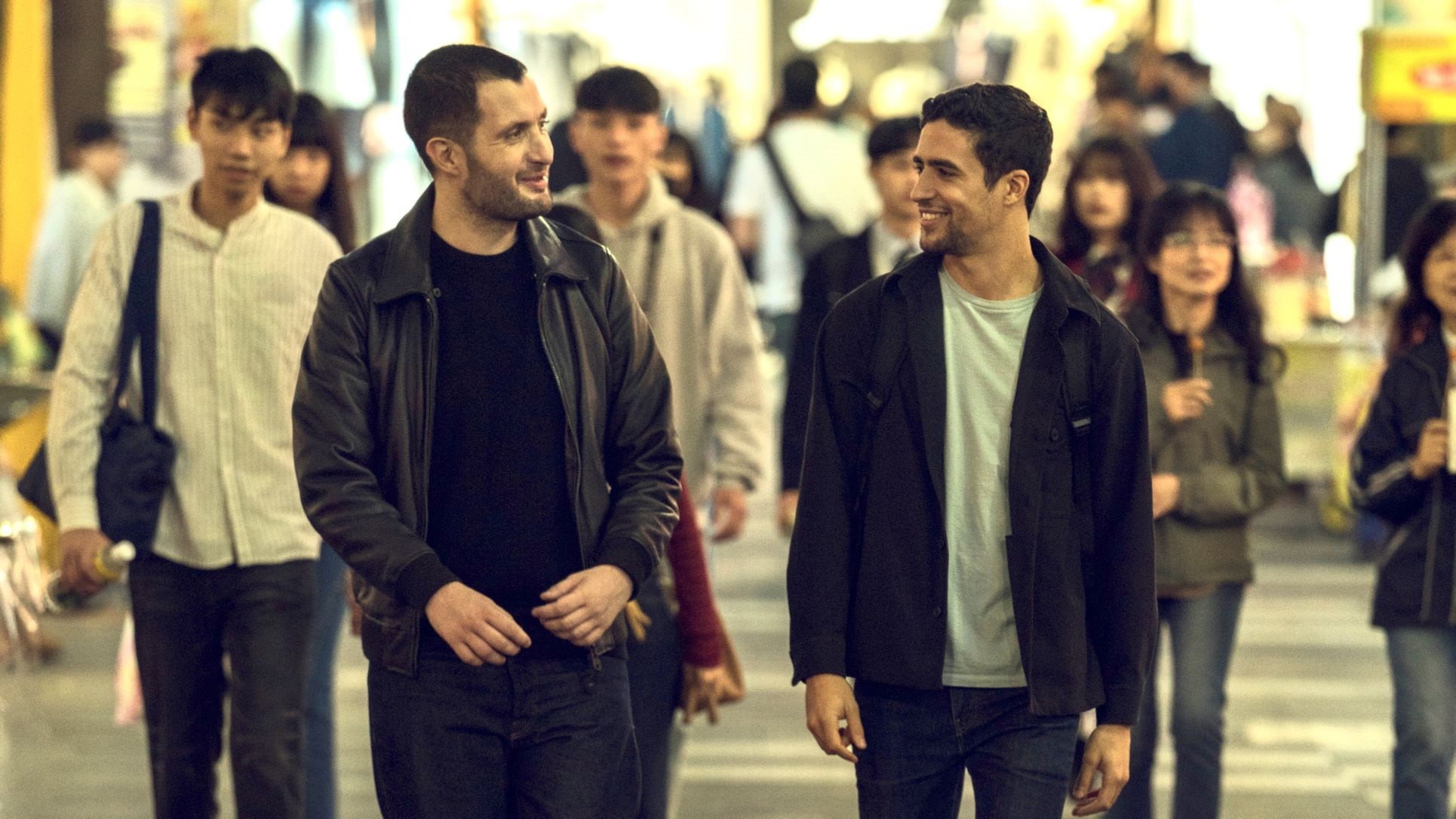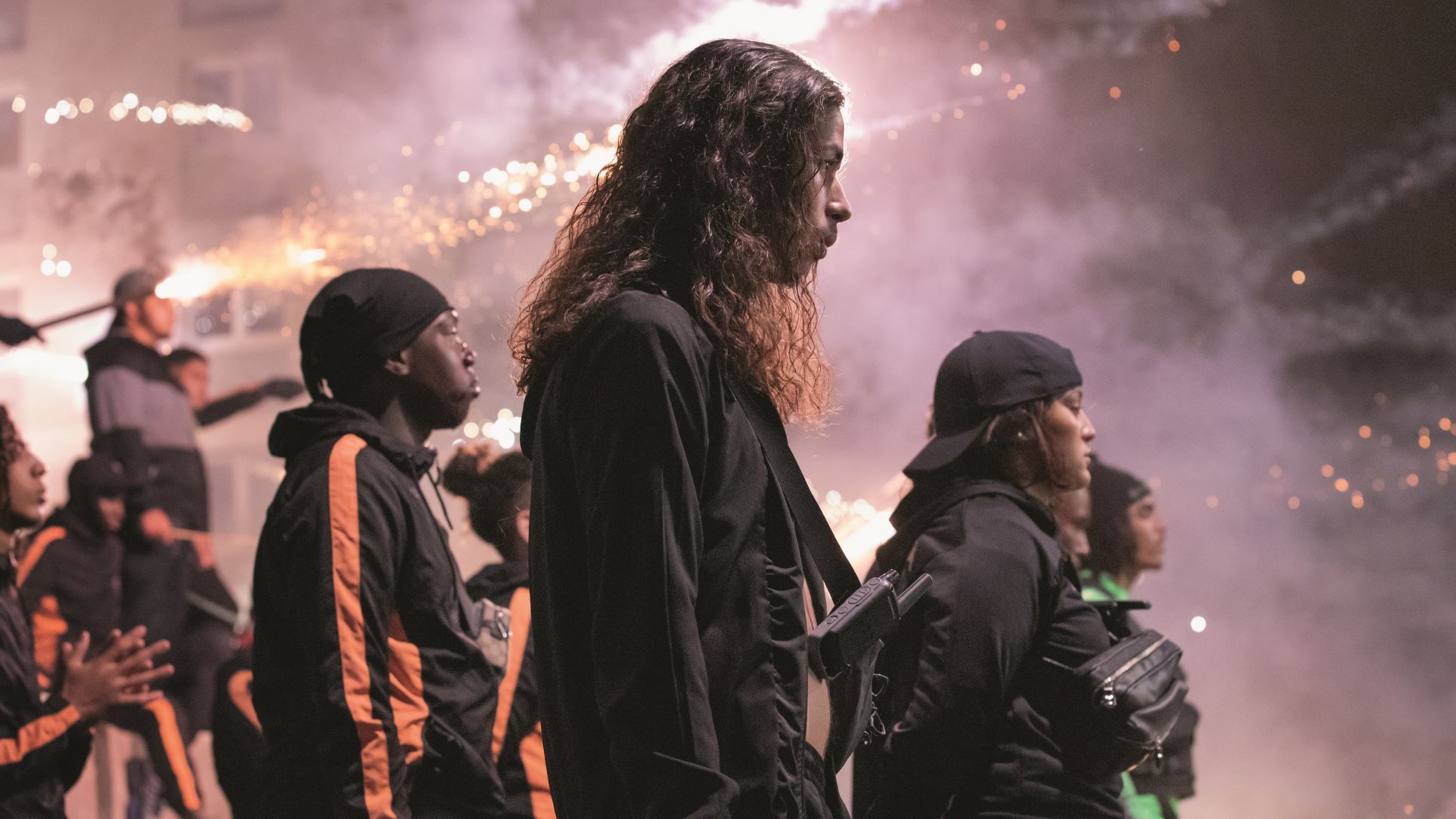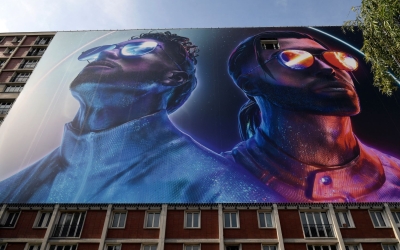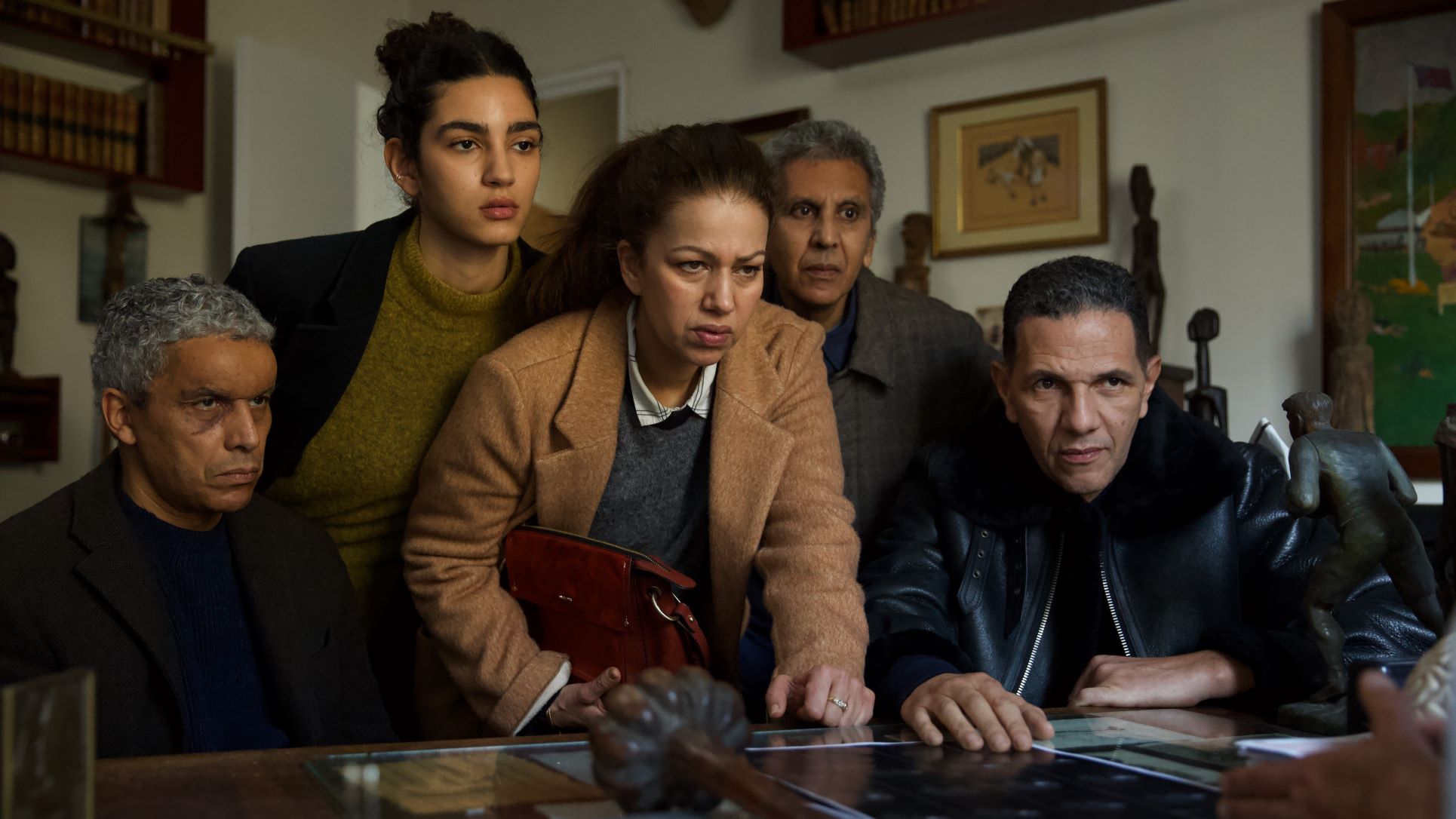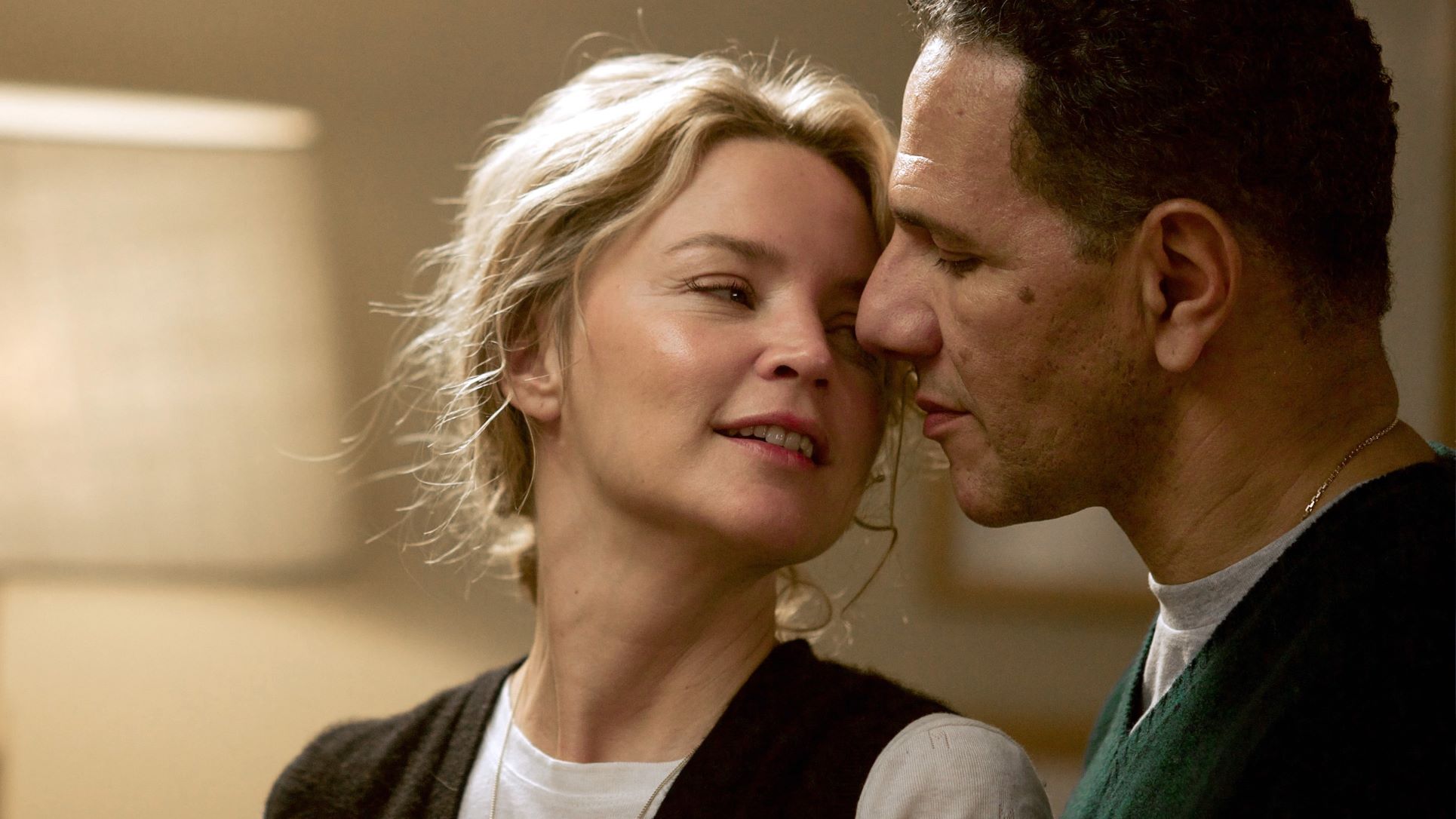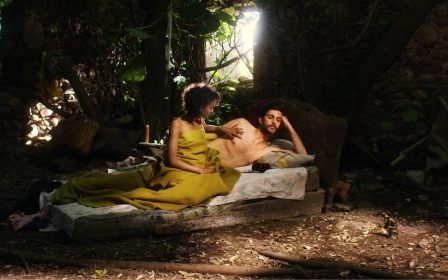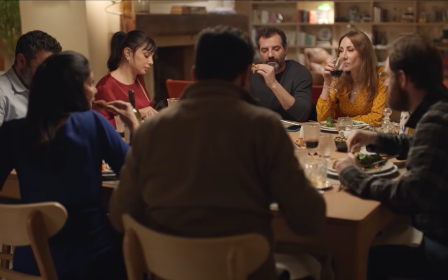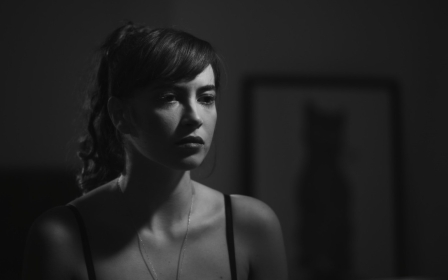Venice Film Festival 2022: Filmmakers explore the kaleidoscope of Arab life in France
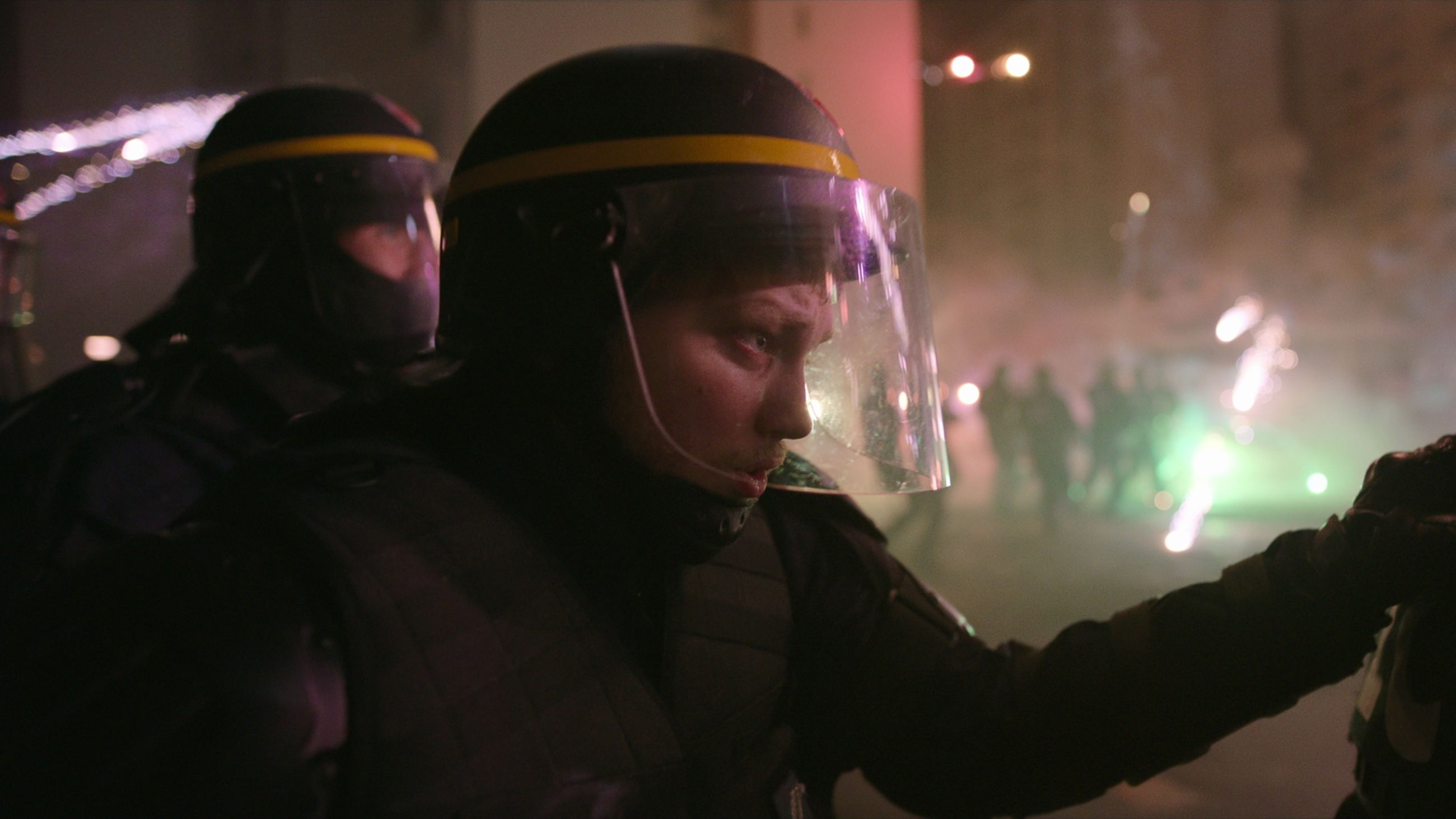
“Candy is better in France,” a downhearted Algerian boy tells his brother as they fantasise about a better future in the country where they have taken refuge from their abusive father.
The dream ultimately turns into a nightmare when the boy, now a freshman at an elite military academy, is accidently killed in a hazing ritual.
As his family fights for a military funeral, they realise that their status as immigrant Arabs has never changed: for French officials, they will always remain "the other".
The student’s family may have successfully assimilated and they may have assumed that they have equal rights, but in front of the law, in front of people in power, they’ll never be French.
This is the premise of French-Algerian director Rachid Hami’s Pour la France, one of several films exploring Arab lives in Europe at the Venice Film Festival.
Each of these films represent a different piece of a large fresco painted with contrasting colours: familiar and unpredictable, complex and over-simplified, optimistic and cynical. All are outlined by one unshakable force: class.
In Hami’s mournful semi-autobiographical account, the two young brothers are born to a policeman father who cannot distinguish violent manhood from discipline. The boys escape civil war-torn Algeria and settle in what they assume is the safety of France.
The bright idealistic younger brother Aissa (Shain Boumedine) embraces the French dream and succeeds in joining the military academy at Saint-Cyr.
Aissa never questions the integrity of his adopted country, even if he’s more at ease in Taiwan with his girlfriend. His elder brother Ismael (Karim Leklou), by contrast, appears to be sleepwalking through life, not having a tangible career or any life goals.
Ismael left his Arab identity behind when he fled Algeria. Yet, unlike his brother, he knows he’s not French either. This feeling is compounded by the official decision to not grant his brother a military funeral.
The anger of their mother Nadia, Belgian-Moroccan star Lubna Azabal of Incendies fame, is more contained, stamped by a scorching resignation.
She knows that suing the French army for homicide is a lost cause; that she must at the end consent to whatever the generals put on the table and that their broken promise of a military funeral was nothing more than wishful thinking.
Although certainly neither poor nor working class, Nadia and her sons are lower-middle class immigrants who must ascend the class ladder to gain their full rights as citizens. In France, class does not just bring wealth and privilege, it’s the key for earning equality, crucial for becoming fully French.
Aissa probably knew this, yet he probably never managed to confront it; he never managed to face a reality that Ismael long knew: that they’re second-class citizens.
Archetypes of ghetto life
Far more ferocious and less subtle, albeit intentionally so, is Romain Gavras’s combustible tour-de-force Athena, a grand Netflix production bound to stir debate in France when it streams later this month.
The film is set in the fictitious Parisian suburb of Athena, which is entirely populated by working class Arabs and Black Africans. Garvas, the son of iconic director Costa-Gavras, instantly throws the viewers in the middle of the action with an elaborate unbroken scene that sees a group of young men barge into a police station before fleeing with a bag full of weapons.
A 13-year-old French-Arab teenager is thought to have been beaten to death by the police, propelling his brother Karim (Sami Slimane) to take the law into his own hands and assume full control of the housing project.
A guileless police officer (Anthony Bajon) is later captured by Karim and taken hostage, escalating the hostility between the police and the young Athena populace.
Karim’s older brother Abdel (Dali Benssalah), a decorated army veteran, acts as a mediator between the French authorities and his brother’s angry militia, much to the chagrin of Karim, who views him as a double-faced collaborator.
Meanwhile, elder brother, Moktar (Ouassini Embarek) is a small-time drug lord comfortable with switching sides as long as his business is unaffected.
The three brothers are essentially archetypes, taking on a number of limited ascribed roles afforded to the ghettoised non-white working class. Unlike the meek brothers of Pour la France, Karim, Abdel and Moktar have no prospects for class ascension.
Karim is too wounded, too desperate, to see a way out of this inferno. The self-serving Moktar knows that nothing may change, so no harm then in making some money out of a dead-end situation.
Abdel naively believes that his work with the army may have earned him some credit with the powers that be, but with the first real test of that conceit, the reality of his fragile position is exposed - a jarring truth that renders his life-long work nothing but a mere quixotic endeavour for unattainable justice.
Athena’s slender narrative is structured as Greek tragedy, replete with mistaken identities, double-crossings, and a sense of blind justice.
The three are not without agency but for the economically disadvantaged, for the ghettoised, for the bastard children of France, the only achievable form of agency is violence.
We know these characters: where they come from and how they’re shaped by a bureaucracy designed to subjugate them.
There’s plenty of visual bravado on display and Gavras does not refrain from showing off his technical chops. Make no mistake, Athena, which was co-written by the Mali-born Ladj Ly of 2019 drama Les Miserables, another story of a riot against the French police, is an action spectacle.
Nevertheless, the burning pain and anger is never smothered under the weight of the visuals. Gavras eschews elaborate characterisation. Athena is not about the awfully familiar narratives of a populace with unchanging conditions: it’s a visceral jolt aimed at the senses, an immersive experience set in an open prison with no escape.
A self-enveloped middle class
The France of Athena and Pour la France bears no resemblance to the cosy middle-class Eden of Our Ties, the new feature by French-Moroccan actor and director Roschdy Zem.
Cesar-winner Sami Bouajila is the newly-separated Moussa, who is struggling to get over his ex. A mad night of drinking ends in an accidental fall that results in a brain trauma.
Moussa’s meekness is gradually replaced with constant irritation, bouts of honest cruelty, and an intolerance for the nonsensical. Only Ryad (Zem), his successful sports TV presenter brother, seems able to help him.
The brain trauma transpires as a pretext to survey Moussa and Ryad’s French-Arab clan.
Zem maintains his focus on the colourful siblings, cousins, and children. Our Ties is thus a loving, charming if slight portrait of a North African family inhabiting a France where race plays no adversary role - a light version of an Abdellatif Kechiche movie, one devoid of complex family dynamics.
The problems of the family members - miscalculated choices, lack of consideration, self-centeredness - are of their own making: a privilege gifted by class ascension.
Yet for all their relative comfort, the clan appears to be self-enveloping, with none of the members depicted to have a social life with white French friends.
Class ascension may have given Ryad and his family the equal rights denied to the kids of Athena and the immigrant siblings of Pour la France; they may have been seamlessly integrated and accepted in Macron’s neo-liberal France, where money doubles as a shield from discrimination. Yet their loves and human ties remain strictly within themselves.
In one scene, Ryad’s girlfriend Emma (French-Algerian actress and director Maiwenn) tells him that she wishes to have had a family like his, and it’s not difficult to see where the sentiment comes from.
The only interactions between the brothers and their white acquaintances are restricted to the workplace, which are cordial if frosty relationships that stand in contrast to the warmth and endearing bickering of Moussa and Ryad’s rowdy family.
A vision of a post-racial France
Lying on the opposite side of the sphere is Other People's Children, the latest outing from French filmmaker Rebecca Zlotowski. In a series of works that includes Grand Central, An Easy Girl and the series Les Sauvages, the Parisian director has shown a keen eye for investigating interracial relationships with rare perceptiveness and sensitivity.
Her latest picture, one of the best offerings of this year’s stellar competition, is a new addition to her expanding oeuvre: a domestic drama centring on a 40-year-old white woman (Virginie Efira) whose nurturing bond towards the daughter of her new French-Arab boyfriend Ali (Roschdy Zem, again) comes under threat when his ex-wife (Chiara Mastroianni) re-enters his life.
Zlotowski provides a vision of a post-racial France. Ali’s North African identity has no role within the course of the drama; an actor of any race could’ve easily slipped in Zem’s shoes without causing any discernible changes in the story.
Zem’s upper middle-class status lends him the biggest social asset of all - the privilege of racial invisibility. Unlike Ryad in Our Ties, Ali does not have any particular family bonds. His race does not define him; his class certainly does.
Ali is what Aissa and Ismael aspired to be and what the denizens of Athena cannot be. The middle-aged Ali is so advantaged that his race becomes a non-issue. For Aissa, Ismael and the boys of Athena, their race may forever define them; for them, class ascension is an upward battle with no guaranteed results.
In Macron’s France, in a France ruled by money, police fascism, and a rising far right, class mobility may be a thing of the past - a window that was briefly opened for Zem’s generation and may no longer be viable.
Athena is currently showing in select theatres in France and will be streamed globally on September 23 on Netflix.
Middle East Eye delivers independent and unrivalled coverage and analysis of the Middle East, North Africa and beyond. To learn more about republishing this content and the associated fees, please fill out this form. More about MEE can be found here.


